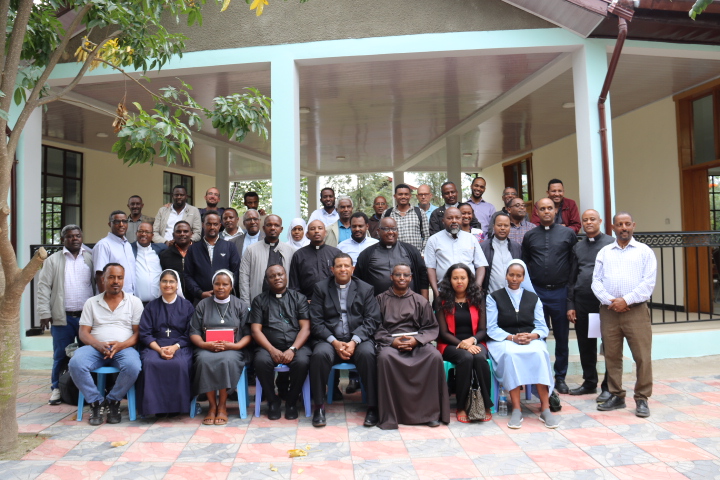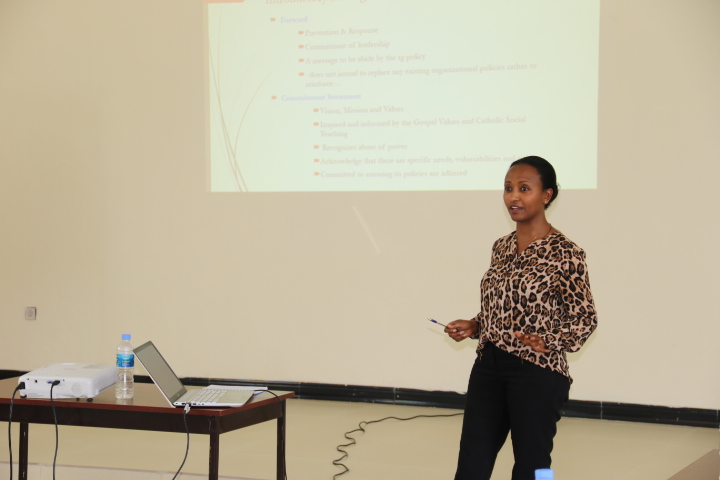ETHIOPIA: Catholic Church Launches Adult Safeguarding Policy

Group picture awareness session to the diocesan representatives in Ethiopia
Bezawit Assefa
The newly formulated adult safeguarding policy is the continuation of the child protection policy released in 2018. The Ethiopian Catholic Church believed in the need for adult safeguarding in its program and project and prepared a guiding policy. The Catholic Bishops’ Conference of Ethiopia has blessed and launched the policy in its 55th plenary assembly.
The universal Catholic church, as part of her evangelization service, prioritizes adult safeguarding in her services and community interactions. His holiness Pope Francis in his conference with Protection Commission said “All abuse unacceptable” continuing “I would like you, on an annual basis, to prepare for me a report on the Church’s initiatives for the protection of minors and vulnerable adults.”
“This might be difficult at the beginning,” he continued, “but I ask you to begin where necessary, in order to furnish a reliable account on what is presently being done and what needs to change, so that the competent authorities can act.”
Following this direction given by the Pope, the Church in Ethiopia has gone through all assessment and procedure to prepare the adult safeguarding policy. In continuation of the Child safeguarding policy, the safeguarding policy addresses all community members and institutions within the Church and those who work with the Church. The new policy accommodates the changes in child safeguarding and the needs and protection of vulnerable adults. The purpose of the policy is to safeguard those vulnerable and reach zero tolerance of abuse.

As part of the ten-year strategic plan, the Ethiopian Catholic Church prioritized safeguarding as competency area and aims to mainstream safeguarding in all its program and project implementations. Ms. Merhawit Challa, CBCE-GS National safeguarding officer highlighted that “safeguarding is not just a single project of the Church, but her mission to safeguard all vulnerable. And the office calls all leadership, to support the implementation of the policy with our focal persons at each diocese.”
According to Ms. Merhawit briefing the implementation process starts from awareness creation, orientation, guideline development and compliant handling procedure. The policy revision will be done every three years and will be evaluated accordingly.
So far, the office has hosted major awareness creation meetings for high delegates of dioceses, national office staff, diocesan focal persons, and the clergy and priest representatives and will continue to bring more platforms at all levels.


